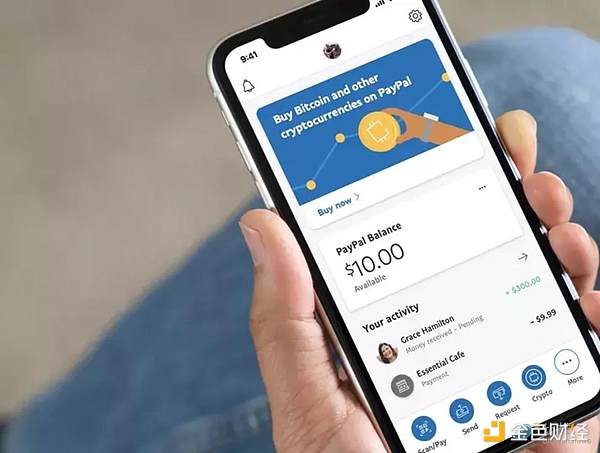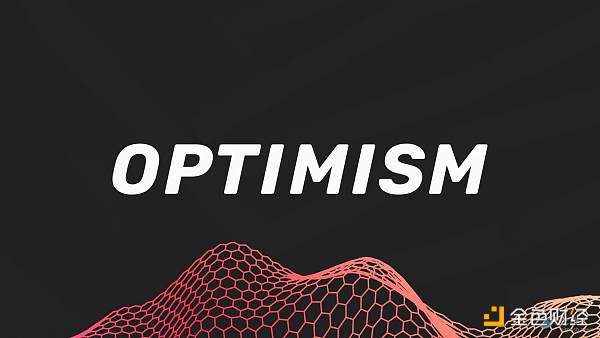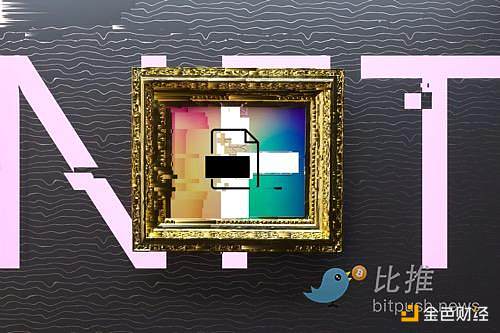Author: Tammy Whitehouse, Wall Street Journal; Compiled by: BitpushNews Mary Liu
Once the "subversive" revolution arrives, the way traditional financial markets operate will be rewritten.
As blockchain, digital assets, and cryptocurrencies enter mainstream markets and gain mass adoption, the velocity of money is likely to accelerate significantly.
Although there have been some scandals in the industry, the concept of cryptocurrency itself has attracted widespread attention, and large business entities in various industries and regions are taking steps to plan, Experiment, pilot or adopt cryptocurrencies, stablecoins and tokenized assets.
Crypto-assets are programmable and they have the potential to replace certain services currently provided by intermediaries such as banks, stock exchanges or brokers. Blockchain, or distributed ledger, enables the transparent creation, storage and transfer of digital assets in real-time, immutable transactions across a decentralized peer-to-peer network.

Lara Abrash, principal of Deloitte US, said: "The scale of current industry exploration indicates that encryption adoption will be more widespread and has the potential to disrupt the existing economic framework. . To move forward responsibly, we must carefully establish clear governance models that maintain transparency, fairness and accountability."
Many countries. A regulatory framework is being developed to allow the use of digital assets in its financial system. This enables financial institutions, commercial and non-profit entities, governments and consumers to conduct many transactions – everything from cross-border bookkeeping and complex supply chains to payroll, benefits administration, digital rights to intellectual property, tax and investment accounts. .
Consumers already have the option to use stablecoins for a variety of retail purchases without using traditional bank accounts, credit cards, or cash; however, these options are often complex and The cost is not low. In some countries where more people may have mobile phones than bank accounts, as the cost and convenience of use increase, a digital currency system may provide more equitable access to people around the world.
Tim Davis, principal and global and U.S. risk and financial advisory blockchain and digital asset leader at Deloitte & Growing acceptance of the tokenization of tangible and intangible assets could change the way entities, governments and consumers around the world conduct common transactions. ”
Evolving. The larger environment — business adoption, regulation and tokenization, or the process of representing assets in digital form — provides context for how the currency and payments landscape can expand to critical mass, suggesting companies may have to start thinking about how to plan and embark on their own digital asset journey.
More and more brands are paying attention
Davis said that more and more major platforms that form the backbone of the modern global economy are planning or starting to consider the potential impacts and opportunities brought by cryptocurrencies and digital assets.
He said: "These include mainstream banks and bank networks, credit card networks and ongoing Technology providers who are experimenting with or operating blockchain network nodes or are developing plans.”
Rob Massey, partner at Deloitte Tax LLP and leader of global and U.S. tax blockchain and digital assets, said, PayPal With access to 428 million active accounts, including 35 million merchant accounts, PayPal's adoption of cryptocurrencies on its platform represents an important step in transforming the way value is exchanged. PayPal account holders can buy, hold, and sell a number of common cryptocurrencies. Account holders can also cash it out to pay for purchases and transfer cryptocurrency between eligible PayPal and Venmo accounts, as well as other wallets and exchanges.

Massey said: “PayPal’s adoption of cryptocurrency provides a key element of adoption – access.”
In another example, JPMorgan Chase has developed and deployed methods to represent traditional assets on the blockchain to achieve frictionless Settlement. Some of the products launched to date include JPM Coin System, a blockchain-based account ledger and payments system, and Onyx Digital Assets, a multi-asset tokenization platform that enables financial institutions, asset managers, and fintech companies The ability to record and represent financial assets as programmable tokens on the blockchain.
Recently, J.P. Morgan and Apollo Global Management released a report describing their vision for a tokenized approach to portfolio management – at scale Personalize portfolios and streamline order execution and settlement for traditional and alternative investments. The system will be powered by blockchain, smart contracts and asset tokenization.
Goldman Sachs has also entered the field of digital assets, conducting cryptocurrency trading and launching its own digital asset platform. Goldman Sachs and firms such as S&P Global, Moody's, Broadbridge and Capgemini have joined Canton – a privacy-enabled open blockchain network that uses smart contract technology to connect entities Connections are provided. Permissioned blockchains are designed to provide interoperability and control to support synchronized financial markets, enabling secure, controlled exchange of data and value.
Wendy Henry, global blockchain and digital asset leader at Deloitte Consulting LLC, said: "Blockchain is developing very quickly, with the necessary transparency and privacy The technological capabilities to horizontally manage large volumes of transactions around the world are becoming increasingly feasible. “The ability for businesses, especially financial institutions, to build applications and tokenize assets on public networks is an important aspect of the development of cryptocurrencies and digital assets. Significant progress. Although financial institutions have not yet taken advantage of this capability at scale, it can scale, allowing for wider adoption. ”
Additionally, as With the rapid development of generative AI capabilities, AI platforms can act as agents conducting financial transactions on behalf of humans.
Davis< /span> said: “Digital assets are very suitable for artificial intelligence platforms because funds can be directly transferred, controlled and programmed. Enhanced ways of using funds mean new risks and benefits, and the rapid development of artificial intelligence may help accelerate the development of digital assets. ”
In addition, platforms such as Bitwave are emerging to provide blockchain-based technologies with Provides connections between traditional finance. Bitwave is a digital asset ledger that feeds into common enterprise resource planning systems to enable programmable funds, including payments to vendors, customers, and employees. The platform enables accounting, auditing and reporting on data captured in the distributed ledger – capabilities that are critical to scaling adoption.

Another important evolutionary step: layering the network on top of the existing network to aggregate transactions in a way that can increase traffic and processing speeds. Just like high-rise buildings can increase real estate capacity in dense areas, second-layer distributed ledgers can benefit from the security of the first-layer network they sit on while significantly reducing transaction costs and increasing processing speeds. For example, Optimism's OP Mainnet is an open source extension for Ethereum designed to expand the Ethereum ecosystem.
"Consumer and business acceptance of cryptocurrencies and digital assets is growing rapidly as major platforms continue to launch applications,"Davis said. "These are important indicators that global currency and payment systems are about to be further disrupted."
Global regulation is evolving
Deloitte LLP Brian Hansen, audit and assurance partner at the firm and head of U.S. audit and assurance blockchain and digital assets, said that many jurisdictions around the world are forming regulatory frameworks for digital assets. The G20 Financial Stability Board and the International Monetary Fund have provided comprehensive guidance on how authorities should respond to macroeconomic and financial stability risks posed by crypto-asset activities and markets. The EU Regulation on the Supervision of Markets in Crypto-Assets, adopted in June 2023, provides rules for crypto-assets that are not regulated under existing financial services legislation. Hong Kong’s Securities Commission has issued regulations regarding tokenized assets, stablecoins and crypto trading.
About 130 jurisdictions around the world are launching, piloting, developing or researching central bank digital currencies (CBDC), although U.S. regulators are still in the process of conceptualizing a U.S. CBDC early stage. California also passed two bills to establish a virtual currency licensing system and regulate digital financial asset transactions.
At the U.S. federal level, the regulatory tone is different, as the risks and volatility of cryptocurrencies have prompted increased government scrutiny on multiple fronts. The Financial Stability Oversight Council has released a report finding that the connection points between digital assets and traditional finance could pose systemic financial risks and urging federal agencies to continue enforcing existing rules and regulations.
The U.S. Securities and Exchange Commission (SEC) has approved the listing and trading of several spot Bitcoin ETFs. This is a significant development for the U.S. market, paving the way for people to invest in Bitcoin in traditional brokerage accounts.
From a reporting perspective, the Financial Accounting Standards Board has developed guidance on how companies should account for cryptocurrencies and other digital assets under GAAP. The IRS has also developed guidance on digital assets, treating them as property for federal tax purposes. At the same time, banking regulators urged financial institutions to increase their awareness of risk prevention.
Tokenization is taking shape
Davis said that as technology adoption and regulation continue to evolve, the global financial ecosystem is gradually approaching a token economy, in which assets are represented in digital form on the blockchain , value exchange is decentralized.

Non-fungible tokens (NFTs) have already attracted attention in specific sectors such as sports and the arts, but blockchain technology and the evolving regulatory environment could Support the tokenization of a wider range of tangible and intangible assets with informed risk. These assets can include securities, loans, public and private funds, hedge funds and money markets, private equity, environmental credit, real estate, commodities, ownership, voting rights and content licenses. Items of value can be converted using coded rule sets and proofs, and can be traded via the blockchain to significantly increase efficiency and transparency.
"Tokenization offers many potential benefits that are becoming increasingly compelling," Massey said. “Think about the typical costs and friction associated with transactions, such as business loans, and how tokenization and value management through a distributed ledger can improve this process.” Using smart contracts and other automated tools, tokens can be encoded , so that they can be executed, cleared and settled almost instantly. The process can be faster and cheaper while providing round-the-clock access and enhanced transparency.
Digital assets and tokenization can help companies better manage cash stranded on their balance sheets.
Massey said: “It allows them to explore facilitating cross-border payments, repatriation A new approach to cash and improved working capital management that can significantly improve the payroll process, providing a way to compensate employees on an ongoing or recurring basis, such as gig workers being paid by the workload or by the day, through tokenization. Eventually, tokenization could lead to a programmable currency system, Henry said, to simplify many traditional banking processes. The value is embedded in the smart contract and the terms and conditions are also encoded. She said: "Even without a third party intermediating transactions, companies can achieve significant improvements in cost, efficiency and transparency, which could dramatically change how they handle their accounts. and finance functions”.
For example, consider the friction often encountered in cross-border payments, which require layers of processes, regulatory scrutiny and costs. With tokenization and programmable currencies, transactions can be executed instantly, anytime, anywhere. They can be automated based on certain trigger events and have built-in transparency and control. Funds do not have to be tangled in payment channels, but can be deployed according to working capital strategies and used when needed.
How to take action
Abrash said:"Although regulatory authorities are still uncertain about how the decentralized financial system will develop, many organizations see the potential advantages of such a system, prompting more and more organizations to Launching or considering launching their own digital assets strategy, companies can consider a number of different paths to planning and embarking on their digital assets journey ”
Form cross-functional teams. Assemble a team from across the enterprise (Finance, Treasury, Accounting, Technology, Legal, Risk, Tax, Compliance, Operations, Supply Chain, HR, and Marketing) to explore what’s happening in the crypto and digital asset space things and consider opportunities and risks.
Learn about blockchain and Web3. Learn how businesses can benefit from a transformed approach to data sharing and verification that provides a transparent, immutable record of transactions without the need for intermediaries. Consider possible use cases where accountability and auditability are important and data needs to be open and transparent to multiple parties who are at arm's length from each other.
Consider possible uses for cryptocurrencies. Despite high volatility and frequent major failures, the cryptocurrency market is maturing as people become more familiar with cryptocurrencies and become more disciplined and rigorous. After extensive effort, analysis, planning, and execution regarding risks and opportunities, rules and regulations, and processes and controls, companies may consider opportunities to invest, buy, sell, hold, and receive payments or payments using cryptocurrencies.
Massey said: "As the cryptocurrency and digital asset space grows, barriers to entry and scale are gradually disappearing. The global economy is moving towards widespread adoption of these Moving in the direction of new ways of doing business. “When cryptocurrencies and digital assets become easier to acquire and trade than fiat currencies and traditional processes, the market is likely to see a wave of adoption that changes the way value is exchanged.
 Kikyo
Kikyo
 Kikyo
Kikyo NFT Now
NFT Now Others
Others Bitcoinist
Bitcoinist Cointelegraph
Cointelegraph Cointelegraph
Cointelegraph Cointelegraph
Cointelegraph Cointelegraph
Cointelegraph Cointelegraph
Cointelegraph